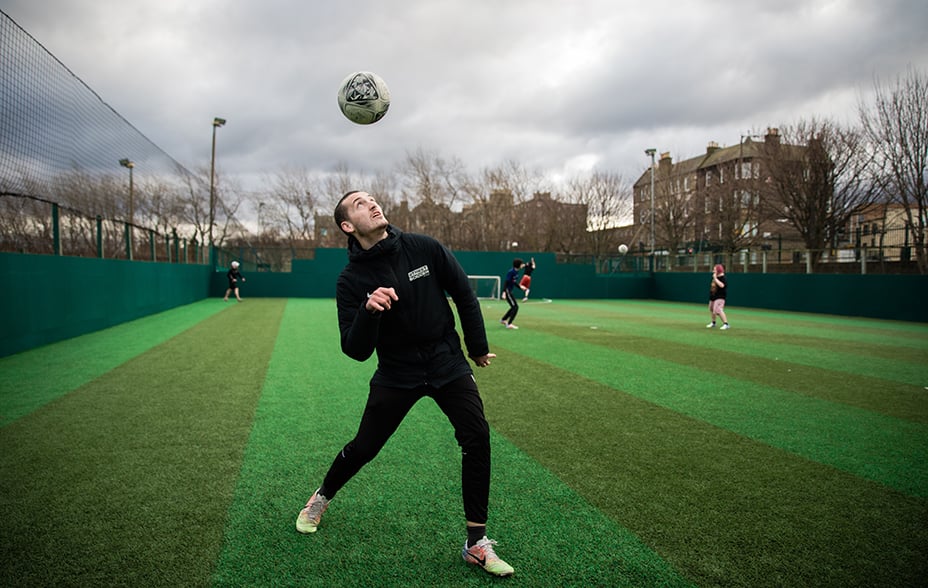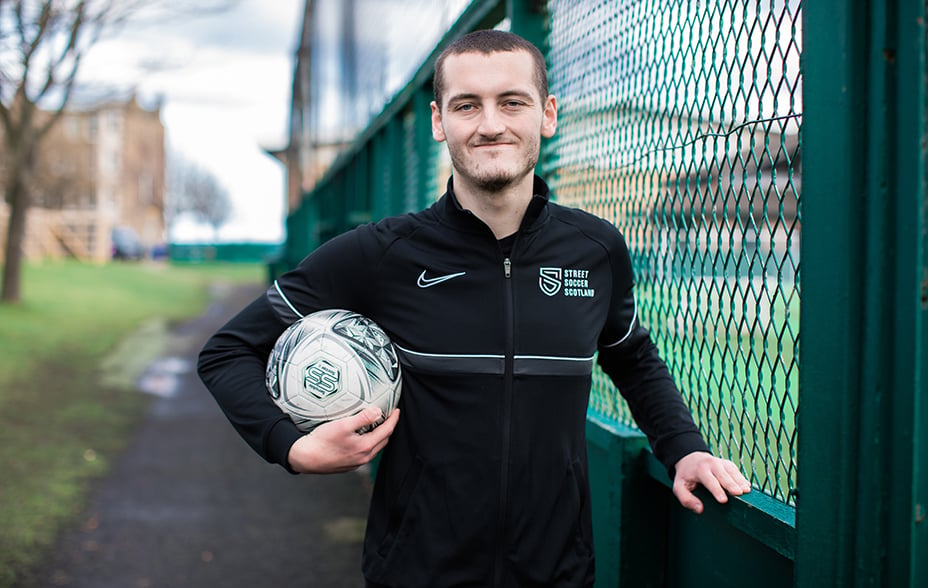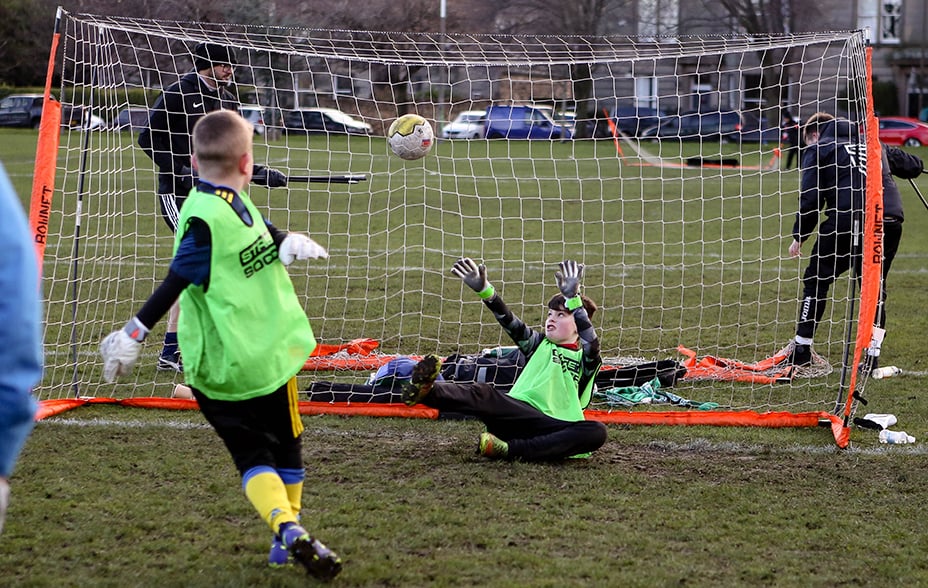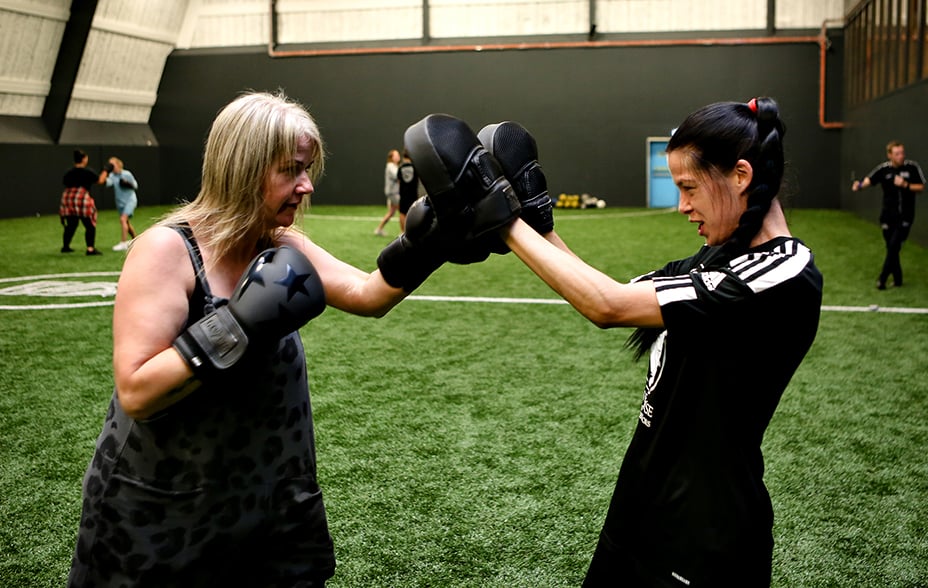
Many players imagine representing their country as they run from one end of a five-a-side pitch to the other on cold and wet nights. That dream came true for Jordan Thomson.
Thomson played in defence for Scotland in 2021 at the Four Nations Challenge Cup. The competition brought together players from Scotland, England, Northern Ireland, and Wales with experience of homelessness.
“It was great because I knew it was happening, but I didn’t expect me to get picked – it was at the last minute,” smiles Thomson.
“I scored two against England and two against Wales. Nobody can take that away from me.”
The tournament was staged in Edinburgh over two days in September 2021 as a substitute for the annual Homeless World Cup, which had been cancelled because of Covid.
Social skills
Thomson first participated in Street Soccer Scotland’s weekly five-a-side matches about four years ago. He subsequently became a volunteer, helping run sessions in Edinburgh each week.
His 500 hours of involvement have earned him a Saltire Award, the Scottish Government’s celebration of youth volunteering. And just days before Christmas, the 21-year-old scooped the Inspirational Young Adult title at the 2021 Edinburgh Evening News Local Heroes Awards.
Thomson continued to volunteer when he became homeless during the pandemic. He has since secured a flat, a place at college and a job.

He credits the social enterprise with developing his communication and leadership skills.
“When I was in trouble, they helped me through,” he says.
‘Proper structure’
Others up and down the country also credit the organisation with improving their lives. They include the enterprise’s founder, David Duke.
David was sleeping rough when he saw a poster seeking players to represent Scotland at the 2003 Homeless World Cup in Sweden.
He made the squad, and Scotland finished fourth in the tournament. This prompted David to get involved in football coaching before leading his country to victory in the competition four years later.
Read about more Philanthropy:
How we support charities and other initiatives
David recognised how football had helped him and wanted to support others in similar circumstances.
“It wasn’t even the playing football part – it was about everything else that brought, in terms of a proper structure, it brought me new relationships, it brought me new support networks,” he explains.
“When you’re in the homelessness situation, you are distracted by a lot of harmful opportunities, whether it be drinking, or in some cases recreational drug use. There’s a lot of negative stuff around you.
“For me, it was about: how do I stay away from that? How do I focus on something good? And that was the football.”
David left a job at The Big Issue, a magazine sold by rough sleepers and other marginalised people, to set up Street Soccer Scotland. He wanted to bring the benefits of the Homeless World Cup to others.
He initially ran football training and matches in Edinburgh and Glasgow. Then, when demand for its sessions soared, he supported players to train as coaches and take leadership roles within the growing organisation.
David says football gives people’s lives structure. He also points to exercise benefitting players’ physical and mental health and self-esteem.
Ongoing support
Street Soccer Scotland attracted funds after being made an official legacy partner for the 2014 Commonwealth Games in Glasgow. This allowed it to expand into Aberdeen and Dundee.
Now, the organisation is partnering with community groups to set up programmes in other parts of Scotland. This includes turning a former Dundee sports centre into a football training facility.

Its adult programme runs drop-in sessions and regional and national tournaments for men and women, while its youth work covers under-16s.
The charity’s prison programme encourages people to continue playing once they’re released and to use its partners’ services to reduce the risk of reoffending.
Edinburgh Napier University has worked with Street Soccer Scotland to create a personal development plan. It covers communication, community volunteering and preparing for employment, among other topics.
“The thing about Street Soccer is, yes, it’s football, but football’s probably 10 per cent of what we’re all about,” says David.
He highlights the ongoing support his organisation provides.
“We’re about connection, we’re about opportunities, we’re about structure, we’re about hope.
“We’re about trying not to leave anyone behind and bringing players closer to the services that they need.”
Funding from Baillie Gifford allowed Street Soccer Scotland to trial its prison and women’s programmes and prove they worked.

This allowed it to apply for further financial support from the Scottish Government and other sources.
“It’s really important to understand that it’s not just a handout,” David adds.
“It’s about forming relationships with the staff at Baillie Gifford to create a supporters’ base within the company.”
Find out more about Street Soccer Scotland at https://streetsoccerscotland.org/
Ref: 19649 10008890

